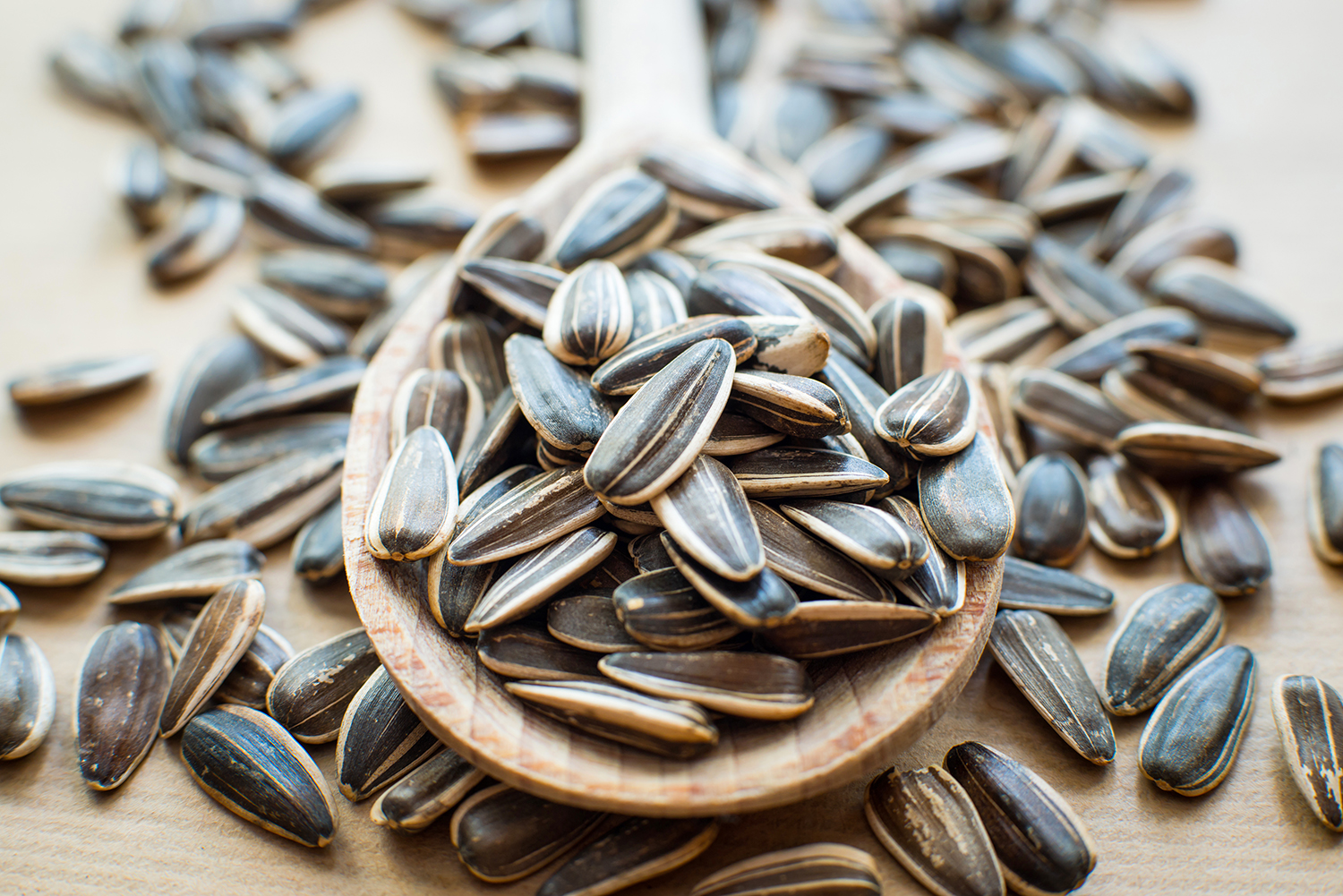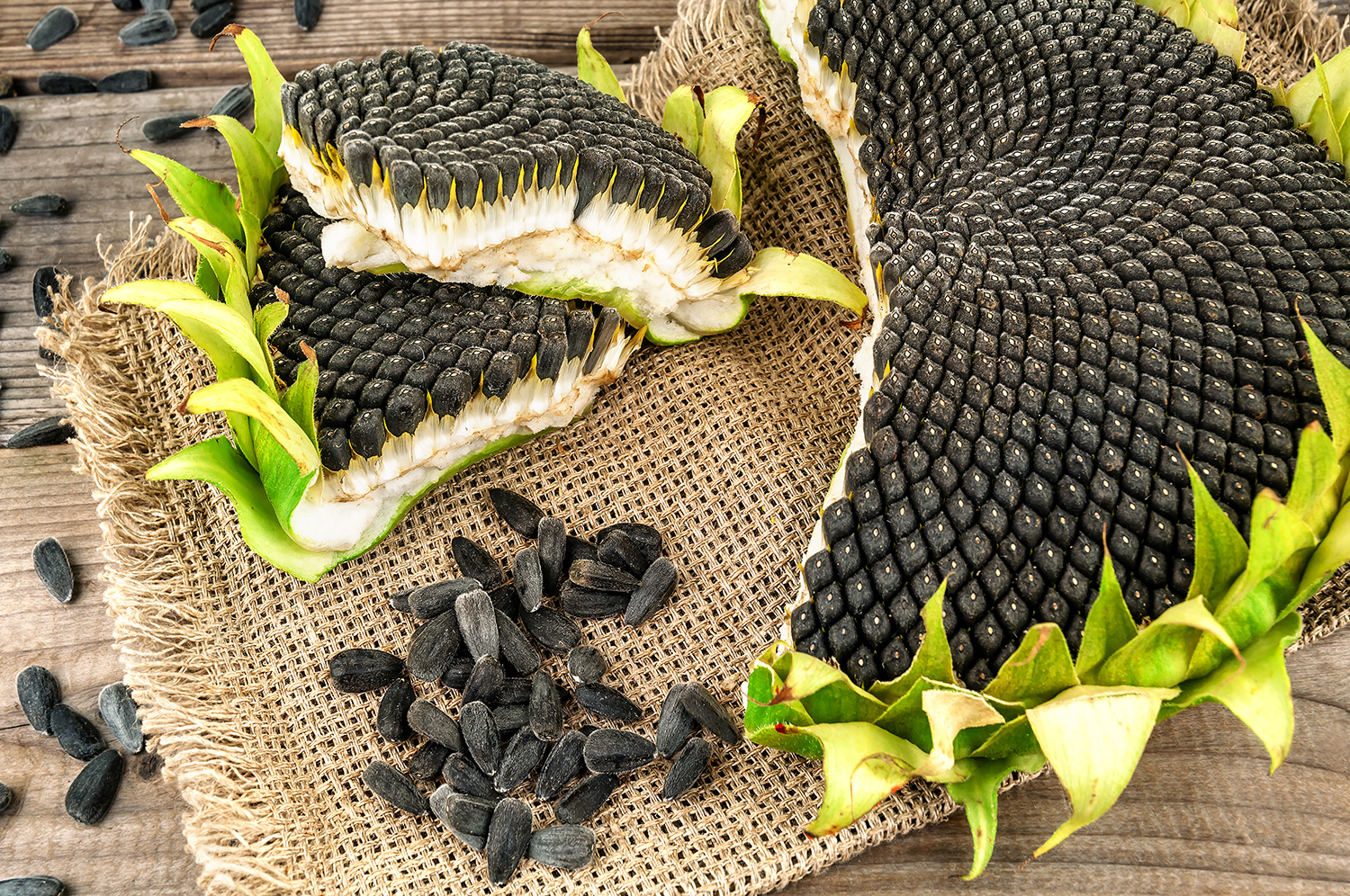Properties of sunflower seeds
Sunflower seeds have excellent properties. We tell you the benefits and nutrients of this typical snack. A complete food!
TRIED AND TESTED
Share

Sunflower seeds or kernels are the edible seeds of the sunflower plant. The
wild sunflower comes from North and Central America, although the commercialisation of the plant took place in Russia. In Spain, we eat the seeds as a snack. For this, they are previously toasted and salted, while in most countries sunflower seeds are only used in animal feed, especially for birds. In North America, they are also used as flour to make bread and pastries.
Nutritional value of sunflower seeds
Sunflower seeds are a high-fat food, very rich in vitamins and minerals. For every 100g of product, they contain 50g of lipids, 8.6g of carbohydrates and 27g of proteins. Their energy value per 100g is 570 kcal.In terms of their composition in vitamins and minerals, they stand out for their high phosphorus, magnesium and vitamin E content. They also contain more than half of the recommended daily amount of zinc (necessary to metabolise proteins). They are rich in phytosterols, a vegetable compound which helps to reduce the amount of cholesterol we absorb.

Benefits of sunflower seeds
- Sunflower seeds are a very nutritious and energetic food.
- Although they are high in fat, these are good fats, since they are unsaturated and help to reduce cholesterol levels and regulate the cardiovascular system.
- The seeds also help to combat anaemia thanks to their large quantities of iron.
- The presence of good quantities of phosphorus and magnesium favour the absorption of calcium and stabilise muscle contraction.
- Sunflower seeds are a rich source of folic acid, so they are recommended during pregnancy.
- The antioxidants that this food contains help to prevent cellular oxidation.
Although sunflower seeds have a few benefits, their consumption should be moderated due to their calorie content and the amount of sodium, which is strengthened when the shell is salted. People who suffer from high blood pressure should exclude them from their diet. For those who don’t, it would be advisable to eat around 30 grams per day at the most, and it’s much better if they are salt-free. This way, the seeds can become a valuable nutritional input.
How to use sunflower seeds in meals?
A different way of eating sunflower seeds is to add a handful to your salads. It will give them a crunchy touch, full of flavour. Another recipe you can make with the seeds is a sunflower seed pâté. For this, they will need to be soaked the night before and ground with sun dried tomato, garlic, parsley and add lemon juice, olive oil, salt and pepper. You can grind the seeds and use them to coat food instead of using bread. An alternative to gluten that can be used in cooking for celiacs. If you like baking, you can add whole seeds to oatmeal biscuits or homemade bread.






